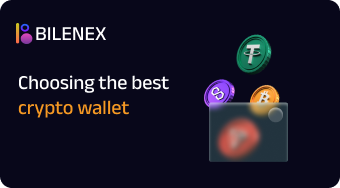
The best crypto wallet for you

1. Understand the Types of Crypto Wallets
Crypto wallets come in several forms, each with its own advantages and drawbacks:
- Hardware Wallets: These are physical devices that store your crypto offline, providing top-tier security. Ideal for long-term holders and those storing significant amounts of cryptocurrency. Examples include Ledger Nano X and Trezor.
- Software Wallets: These are applications you install on your computer or mobile device. They offer convenience and are suitable for everyday transactions. Trust Wallet and Exodus are popular options.
-
Web Wallets: Accessible through a browser, these wallets are convenient for quick access but are more vulnerable to hacks. Coinbase and MetaMask are examples.
-
Paper Wallets: This involves printing your private keys on paper, making them immune to online threats but vulnerable to physical damage or loss.
Understanding these types will help you narrow down your options based on how you plan to use and store your crypto.
2. Security Features
Security should be a top priority when choosing a crypto wallet. Here are some key security features to look for:
-
Two-Factor Authentication (2FA): Adds an extra layer of security by requiring a second form of verification beyond just your password.
-
Backup and Recovery Options: Ensure the wallet offers a way to back up your private keys and recover your funds if you lose access to your wallet.
-
Open Source: Wallets that are open source allow the community to audit the code, ensuring there are no hidden vulnerabilities.
If you’re holding a large amount of crypto, consider a hardware wallet for the highest level of security.
3. User Experience and Interface
The wallet you choose should be easy to use, especially if you’re new to cryptocurrencies. Look for a wallet with a straightforward interface that you feel comfortable navigating. Some wallets offer advanced features like integrated exchanges and portfolio trackers, which can be beneficial if you’re actively managing your assets.
4. Supported Cryptocurrencies
Not all wallets support every cryptocurrency. If you hold multiple types of cryptocurrencies, ensure that the wallet you choose can store all of them. Multi-currency wallets like Exodus or Ledger support a wide range of coins and tokens, making them ideal for diverse portfolios.
5. Compatibility with Your Devices
Consider the devices you use most frequently. If you’re always on the go, a mobile wallet might be the best option. If you prefer managing your crypto from your desktop, look for a wallet with a good desktop application. Ensure that the wallet you choose is compatible with your operating system, whether it’s Windows, macOS, Android, or iOS.
6. Customer Support and Community
Good customer support can be crucial, especially if you run into issues with your wallet. Check if the wallet provider offers responsive customer service and if there is an active user community. Online forums, Reddit, and social media can be great places to gauge the level of support available.
7. Costs and Fees
While many crypto wallets are free, some charge fees for certain transactions or additional features. Be sure to understand the fee structure of the wallet you’re considering. For instance, some wallets might charge higher transaction fees but offer better security or additional features.
8. Reputation and Reviews
Finally, do some research on the wallet’s reputation. Look for reviews from other users, and check if the wallet has had any security breaches in the past. A wallet with a strong reputation and positive user feedback is likely a safer choice.
Conclusion
Choosing the best crypto wallet depends on your specific needs and how you plan to use your cryptocurrencies. Whether you prioritize security, ease of use, or support for a wide range of coins, there’s a wallet out there that fits your requirements. Take the time to assess your options carefully, and you’ll be better equipped to manage and protect your digital assets.

 Registration
Registration  Login
Login  Create an account
Create an account
 Log in
Log in